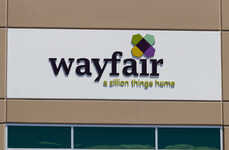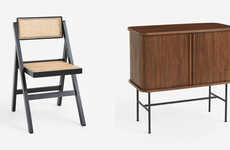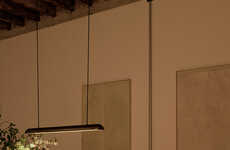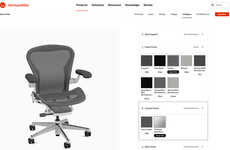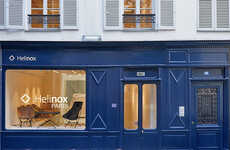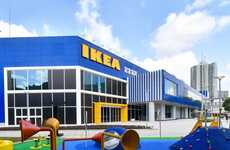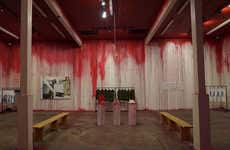
Herman Miller Has Opened Its First Brick and Mortar Store
Mishal Omar — January 11, 2017 — Art & Design
References: architizer & forbes
The luxury furniture manufacturer Herman Miller has continued its online influence but also chosen to expand by creating a Brick and Mortar space in Manhattan.
The CMO of the brand was quoted by Forbes as saying "We understand that physical retail is an ideal touchpoint for engaging with consumers and critical to Herman Miller’s strategy of being recognized as a premium lifestyle company." The new brick and mortar space is an inevitable extension to the company's brand, despite the fact that physical retail spaces are being challenged by e-commerce websites like never before.
By expanding into the brick and mortar sphere, Herman Miller is able to engage new customers and provide an experience that would not be possible online.
The CMO of the brand was quoted by Forbes as saying "We understand that physical retail is an ideal touchpoint for engaging with consumers and critical to Herman Miller’s strategy of being recognized as a premium lifestyle company." The new brick and mortar space is an inevitable extension to the company's brand, despite the fact that physical retail spaces are being challenged by e-commerce websites like never before.
By expanding into the brick and mortar sphere, Herman Miller is able to engage new customers and provide an experience that would not be possible online.
Trend Themes
1. E-commerce Challenge - The rise of e-commerce websites is challenging the traditional brick and mortar retail model, leading to opportunities for innovative strategies.
2. Premium Lifestyle Brands - There is a growing trend of luxury furniture brands expanding into brick and mortar spaces to create premium lifestyle experiences.
3. Engaging with Consumers - Physical retail spaces provide an ideal touchpoint for brands to engage with consumers and create unique experiences.
Industry Implications
1. Furniture Retail - The furniture retail industry is adapting to the rise of e-commerce and exploring new ways to engage with customers.
2. Luxury Retail - Luxury brands are investing in brick and mortar spaces to create immersive lifestyle experiences and differentiate themselves from online competitors.
3. E-commerce Platforms - E-commerce platforms are continuously evolving to provide innovative solutions that bridge the gap between online and offline shopping experiences.
3.4
Score
Popularity
Activity
Freshness

